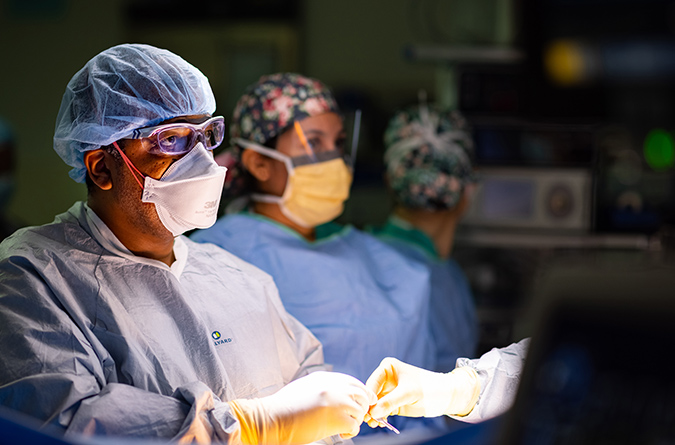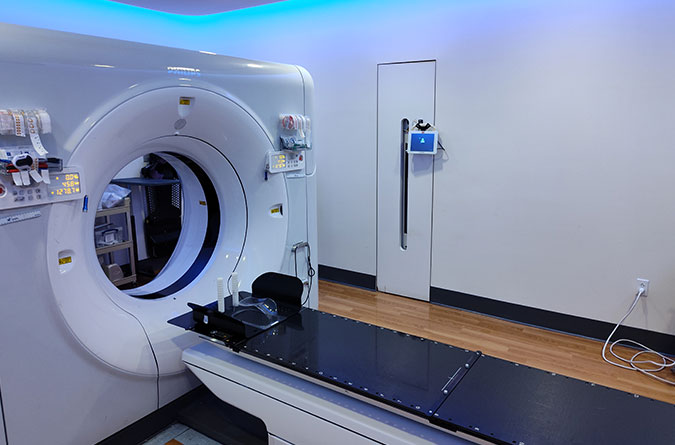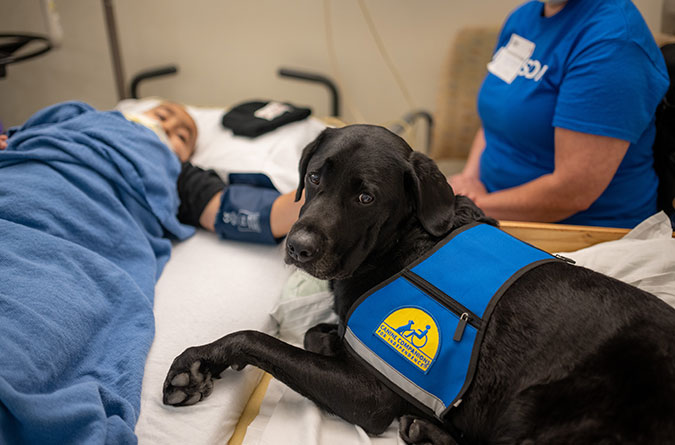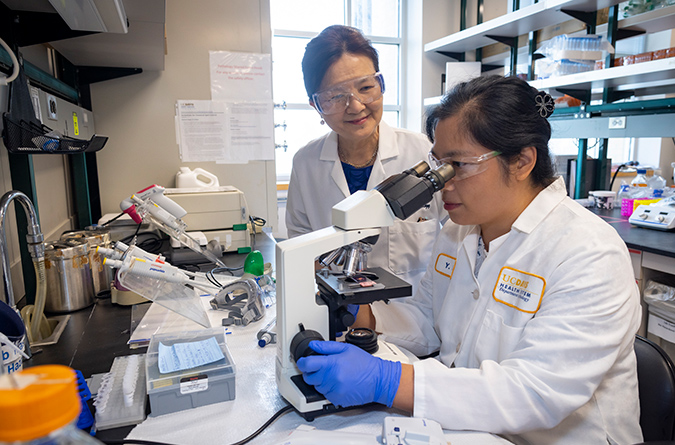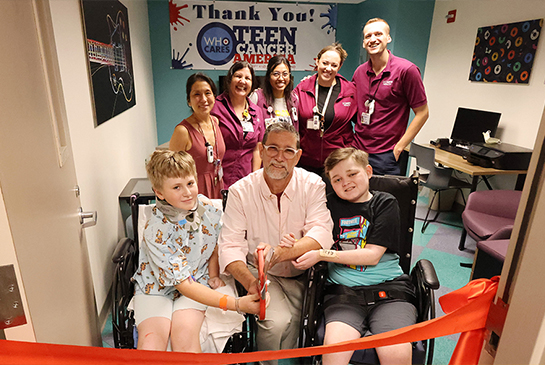Pediatric Cancer Care
Child Cancer Treatments and Services
Treatment Options
Young patients at UC Davis Comprehensive Cancer Center access the latest cancer treatments including surgery, radiation therapy, chemotherapy and other types of advanced care.
Our multi-disciplinary experts take part in tumor boards to analyze individual cancer cases and discuss treatment options. In addition, some tumors can be genetically profiled to enable our oncologists to target treatments according to the tumor’s specific genetic mutations.
Below are available treatment options; however, cancers are highly variable, and each requires a personalized plan. Our oncologists will always present the best approaches for each child’s unique diagnosis.
Surgery
The tumor and surrounding tissue are removed by a surgical oncologist.
Radiation Therapy
High-energy radiation is used to shrink a tumor and kill cancer cells.
Chemotherapy
Medicines used to shrink tumors and kill cancer cells are administered intravenously or taken orally.
Immunotherapy
Therapy that uses a patient’s own immune system to treat cancer by stimulating the immune system to recognize and attack cancer cells or by introducing man-made proteins to kill cancer cells.
Services
We use a holistic approach to cancer care and offer many support services for our patients and their families.
-
Read morearrow_forward
The Child Life Program helps provide a positive environment for the child, one in which they can grow and develop while receiving medical care. Child life specialists, music therapists and art therapists are trained to offer developmental, educational, and therapeutic interventions for children and their families under stress.
Experts help individuals determine cancer risk using genetic tests and offer recommendations for screening and risk reduction.
A team of social workers is available to support patients and their families from diagnosis through treatment. They offer psychological services and practical support, like finding temporary housing.
We offer multiple pharmacy options throughout the health system, including inpatient (infusions) and outpatient (oral medication) pharmacies staffed by pharmacists who specialize in oncology medications and infusions. Some patients may qualify for home delivery of oral medication through the Specialty Oncology Program Service.
Oncology dietitians offer tips for staying healthy during treatment, including managing treatment-related side effects like dry mouth and poor appetite.
Pediatric cancer patients have access to clinic services aimed specifically at addressing the long-term effects of cancer treatment. Long-term effects from cancer surgery, chemotherapy and radiation therapy may include physical, emotional or intellectual problems that develop or evolve over time.


